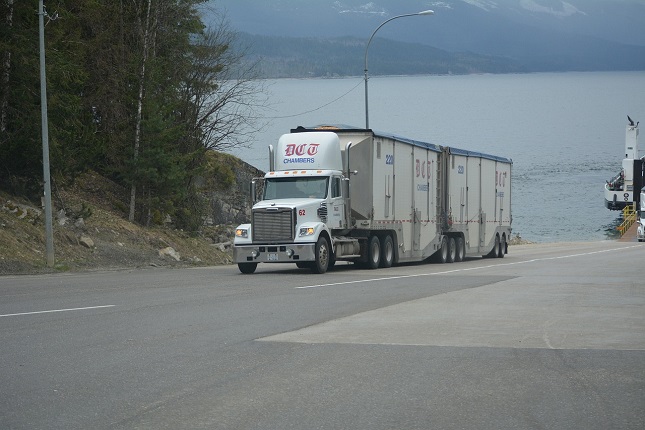Did you know that most people have been involved in a truck accident? Seriously, ask around.
The average person has had at least one encounter with an 18-wheeler. Sometimes, you just hope the other driver gets a speeding ticket.
But what if it’s your family member on the other end of that ticket? And not in the winning kind of way?
If you’ve suffered serious injury or wrongful death in a truck accident, knowing the answer to the question how to prove negligence could make the difference between fair compensation and zero dollars. With 74.9% of truck accidents resulting from collisions being fatal, we’re not talking about minor fender benders either.
Let’s be real for a second.
Truck accident cases are significantly more complex than your typical car crash. There are multiple parties, federal regulations, and aggressive legal teams backed by trucking companies with big bucks at stake. That’s why expert Oregon truck accident attorneys act immediately to preserve critical evidence and build robust negligence cases.
This article will show you exactly how to prove negligence in truck accident legal proceedings. You will understand the key elements and types of evidence required to build a winning negligence case.
What you’ll discover:
Table of Contents
The 4 Key Elements of Truck Accident Negligence
Think for a moment about how to prove negligence in a truck accident legal proceeding.
First, do you even have a chance to win? Winning a truck accident case requires understanding the four pillars of negligence. If you miss even one element, you can lose your case.
The Driver Owed You a Duty of Care
The duty of care means that a reasonable truck driver owes you and every other road user a duty of care. Professional drivers have far higher standards that they must comply with under FMCSA regulations, from licensing to vehicle maintenance to compliance with hours-of-service rules.
The good news is this is normally the easiest element to prove.
The Driver Breached Their Duty of Care
Here is where it gets interesting…
The breach of duty means truck drivers violated their duty of care. When 32% of truck accidents involve speeding, there are plenty of potential breaches.
Some common examples include:
- Driving drowsy or beyond hours-of-service limits
- Texting or phone use while driving
- Speeding or reckless driving
- Driving under the influence of drugs or alcohol (commercial drivers have a .04 BAC limit vs .08 for regular drivers)
- Operating a vehicle with improper maintenance
- Exceeding weight or cargo limits
The Breach Caused Your Accident
This is where you must connect the breach directly to your accident. The breach of duty must have caused the truck driver’s negligence that resulted in the collision and your injuries.
This element can be difficult to prove.
Trucking companies will raise defenses that the weather, road conditions, or your own actions contributed to the accident. Expert accident reconstruction analysis can prove or disprove the driver’s breach was the cause of the crash.
The Accident Resulted in Damages
Finally, you must have actual losses (damages) that resulted from the accident, such as:
- Medical bills (past and future)
- Lost wages or earning capacity
- Property damage
- Pain and suffering
With the national average cost of a commercial truck accident being $148,279, make sure you have accurate documentation.
The Evidence You Need to Prove Your Case
Evidence in a truck accident case will prove or disprove every key element of your claim.
But here is what most people don’t know…
Trucking companies act immediately to protect their interests. They’ll dispatch scene investigators within hours.
The Police Report
This is where you start. Police reports have valuable information about accident facts, citations issued, and contact information for other parties and witnesses.
Electronic Logging Device (ELD) Data
Trucks and tractor-trailers have electronic logging devices that track everything from hours-of-service, speeds, braking, to GPS location. This data can prove drivers were over hours or speeding, but this information is routinely overwritten in days or months.
Driver Qualification Files
Driver qualification files are a goldmine of information for proving liability. File reviews may reveal negligent hiring, inadequate training, prior violations, or drug test failures.
Maintenance Records
If a lack of maintenance played a role in the accident, maintenance records (or lack thereof) will show missed inspections, known problems, and federal violations.
Witness Statements
Don’t overlook eyewitness accounts. Witness testimony is critical third-party evidence. Get it while it’s fresh.
The 3 Most Common Types of Trucking Negligence (With Examples)
Knowing common negligence types will help you understand what to look for after your accident.
Driver Fatigue
Federal law limits driving hours, but pressure from trucking companies to meet delivery schedules causes violations. Evidence may include HOS violations and company demands.
Distracted Driving
Drivers get distracted by phones, food, or other activities. When you’re talking about an 80,000 pound truck, distraction has serious consequences.
Impaired Driving
Commercial drivers face stricter limits but impairment from drugs, alcohol, or other medications still happens.
Inadequate Training
Training evidence can include shortened training periods or hiring drivers with no experience.
Mechanical Failures
Look for defects that caused or contributed, such as brakes, tires, steering, or cargo securement failures.
4 Types of Evidence You Must Preserve Immediately
Critical evidence in truck accident cases doesn’t stay around long.
Electronic data will be overwritten, trucking companies will repair damaged vehicles, and records will disappear. Experienced attorneys will immediately send preservation letters known as spoliation letters to trucking companies demanding they preserve all evidence.
The following evidence has an expiration date…
- Electronic Logging Device (ELD) data gets overwritten in as few as 6 months.
- Trucking companies will often repair damaged vehicles within days or weeks.
- Witness memories fade and may become unavailable over time.
- Security camera video or cell phone footage may be deleted.
For this reason, the first 48-72 hours is absolutely critical to preserve all evidence, interview witnesses, and collect electronic data before it disappears.
Multiple Parties, Multiple Liable Parties
Unlike a simple car accident, a truck collision often involves multiple potentially liable parties. This multi-party aspect also creates multiple opportunities for compensation.
Here are the most common:
- The Truck Driver: For his or her direct negligence
- The Trucking Company: For negligent hiring, training, maintenance, or supervision
- Cargo Loader: Improper cargo loading could be a factor
- Maintenance or Repair Companies: If maintenance negligence can be shown
- Equipment Manufacturers: If defective truck equipment contributed
All of the above adds up to significant complexity for both you and the defendant trucking companies.
Building Your Winning Strategy
Ok, now that you know the key elements and types of evidence required to prove negligence. How can you maximize your chances of success?
Here’s the secret sauce that expert personal injury attorneys use.
Act immediately. Contact an experienced truck accident attorney as soon as possible after your accident, within hours not days.
Preserve everything. Don’t throw away any medical records, photos, or documents related to your accident.
Follow all medical advice. Failure to seek treatment or skip treatments or appointments can seriously harm your case.
Don’t make recorded statements. The trucking company’s insurance adjusters will want you to make a recorded statement. Do not do so without an attorney present.
Keep a detailed journal. Make notes on how your injuries are affecting you and your day-to-day life.
Bringing It All Together
Proving negligence in truck accident legal proceedings is a challenge, but with the right strategy and legal help, it can be done.
You must remember the 4 key elements, types of evidence, and the importance of time. Be sure to work with an experienced legal team that understands the complexities of trucking cases.
The bottom line?
Time and evidence determine winners and losers in truck accident cases. The sooner you act to preserve evidence and build your case, the better your chances of receiving fair compensation.
Don’t let trucking companies bully you or underestimate the strength of your case. With the right strategy, approach, and evidence, you can win a truck accident negligence case and secure the financial recovery you deserve.








































